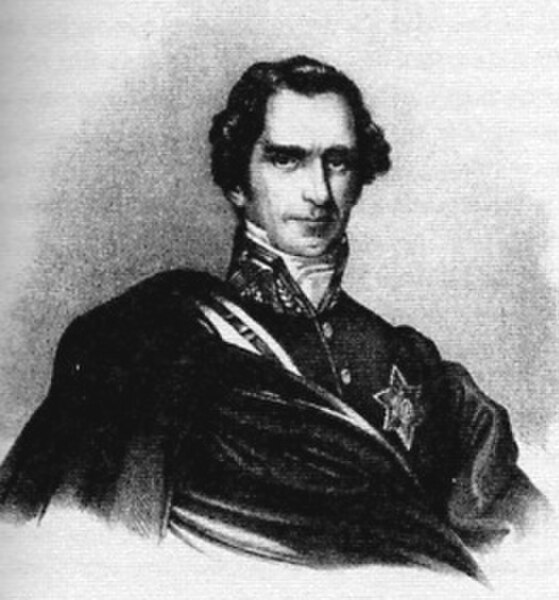Rienzi, der letzte der Tribunen is an 1842 opera by Richard Wagner in five acts, with the libretto written by the composer after Edward Bulwer-Lytton's novel of the same name (1835). The title is commonly shortened to Rienzi. Written between July 1838 and November 1840, it was first performed at the Königliches Hoftheater Dresden, on 20 October 1842, and was the composer's first success.
Last scene of act 3 of Rienzi at the Théâtre Lyrique, 1869
Interior of the first Dresden Opera House, where Rienzi was premiered in 1842 (contemporary sketch by J. C. A. Richter)
Baron von Lüttichau (1786–1863), General Director of the Dresden Opera House from 1824
Carl Reißiger, conductor of the first performance of Rienzi
Wilhelm Richard Wagner was a German composer, theatre director, polemicist, and conductor who is chiefly known for his operas. Unlike most opera composers, Wagner wrote both the libretto and the music for each of his stage works. Initially establishing his reputation as a composer of works in the romantic vein of Carl Maria von Weber and Giacomo Meyerbeer, Wagner revolutionised opera through his concept of the Gesamtkunstwerk, by which he sought to synthesise the poetic, visual, musical and dramatic arts, with music subsidiary to drama. He described this vision in a series of essays published between 1849 and 1852. Wagner realised these ideas most fully in the first half of the four-opera cycle Der Ring des Nibelungen.
Wagner in 1871
Wagner's birthplace, at 3, the Brühl, Leipzig
Wilhelmine "Minna" Planer (1835), by Alexander von Otterstedt
Wagner c. 1840, by Ernest Benedikt Kietz








